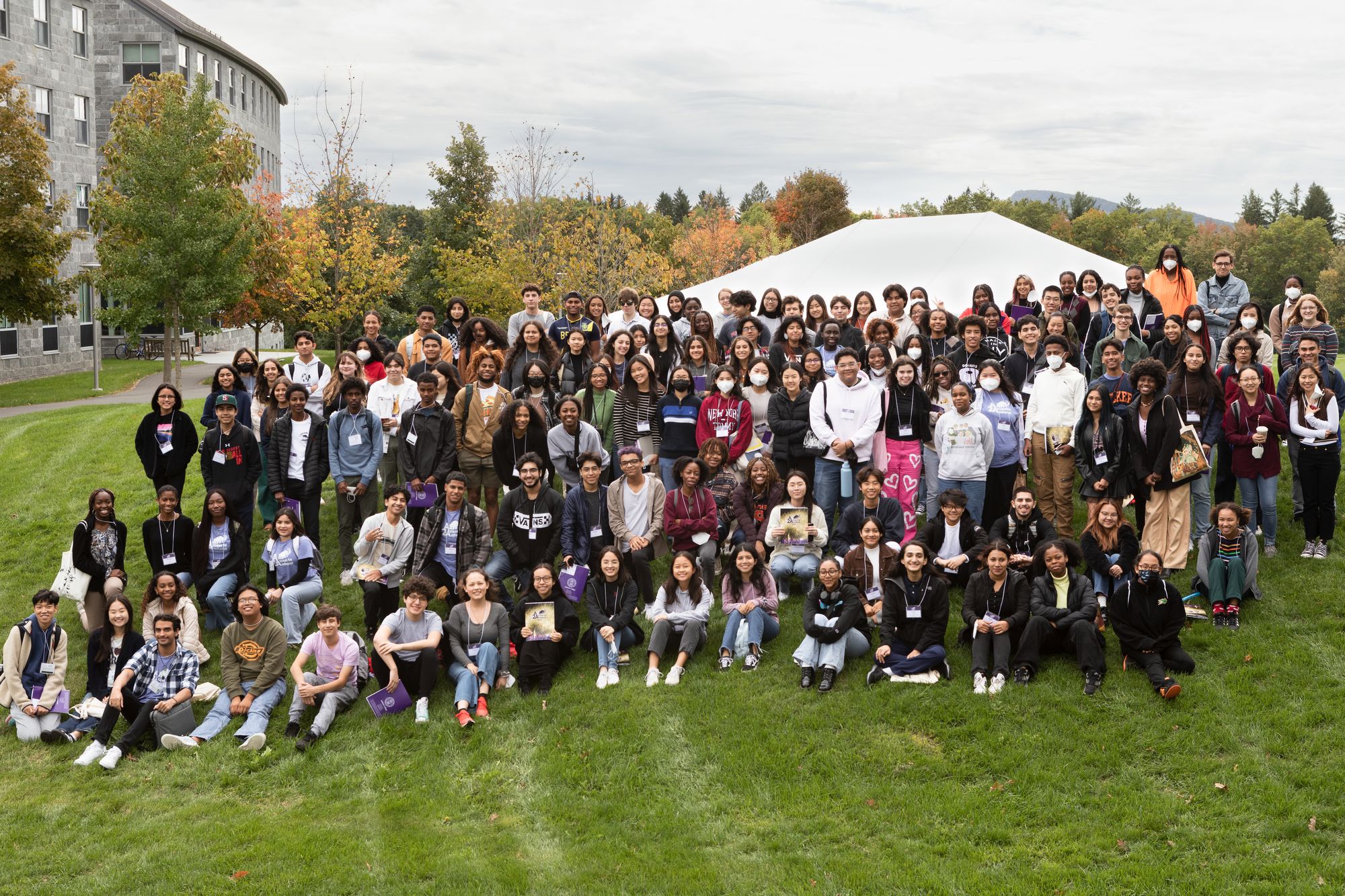Access to Amherst Makes Successful Return in Person Following Scramble for Hosts

Access to Amherst (A2A), a free fly-in program which introduces prospective applicants to the college’s campus, student body, faculty, and classes, was held on campus for the first time since the pandemic began on Oct. 1-3, despite challenges in recruiting student hosts to accommodate the attendees.
In a change from when the event was last held in person in fall 2019, two weekends with 70 students each were condensed into one weekend of 135 prospective students. This was designed to make it easier to coordinate with other colleges’ fly-in programs, said Diversity Outreach Intern Sirus Wheaton ’23.
Early Opportunity for Native Students (EONS) was also held this past weekend, starting one day earlier on Sept. 30. According to its website, A2A prioritizes prospective students from historically marginalized groups, first-generation college students, and students from families with limited financial resources.
Attendees speak with diversity interns, meet with admissions staff, and participate in a mock application workshop and financial aid sessions, among other activities. They also have the opportunity to sit in on classes at the college.
All transportation costs for attending are covered for prospective students. The college works with a travel agency and the admissions office to secure flights. Attending students are matched with an on-campus host, whose dorm room they stay in.
However, one week before the program’s start, 30-40 prospective students, nearly a third of the total set to attend the event, were unmatched, said Diversity Outreach Intern Jeanyna Garcia ’23, who helped plan the event. This was because of a late start to planning on the side of admissions and the new requirement of a Massachusetts Criminal Offender Record Information (CORI) for hosts, Garcia said.
CORI includes a background check, forms, and training videos.
“This posed many barriers because students were aware that they would do additional steps but didn't realize how time-consuming the steps would be,” Garcia said. “It takes huge chunks of time to fill out those forms.”
But thanks to a final push from the Diversity Outreach Interns — which included adding an incentive for hosts to be entered in a drawing for a $150 VISA gift card and advertising the importance of A2A — all prospective students had a place to stay. In fact, they had so many more sign-ups in the last week that the Diversity Outreach Team had to turn students away from hosting, Garcia said.
“Amherst is known for historically recruiting diverse students, and this program plays a big part in that,” said Nicholas Torres ’25, a former A2A attendee and now host. “We want to maintain that community. If it means having a couple of high schoolers sleep on our floors for a couple of days, that’s what we got to do.”
Torres said that when he attended A2A, the financial aid meeting was a big deal, as his family was concerned about the financial aspect of attending college. “Getting the opportunity to sit down with a dean of financial aid was really, really helpful,” Torres said. “I even paid less than he said.”
In the past, approximately 75 percent of A2A attendees have subsequently applied for admission to the college. Of those who apply, typically 65 percent are admitted, according to its website. “The reason why it is so successful is because so many students feel a connection to the program,” Torres said. “I’m hosting because I know I wouldn’t be here right now if not for A2A.”
Wheaton said that the last time A2A was in person, they needed fewer hosts because it was spread across two weekends, one in September and one in October. “We actually got more people to sign up [this year] than any year before,” Wheaton added.
Diversity outreach interns take students to each scheduled event, and pair students with hosts. “I loved asking students how they felt about their hosts and hearing glowing reviews,” Garcia said. “It was really nice to see that I made that relationship happen.”
Generally the interns do not host students themselves because they are working at the event, but this year, Sirus Wheaton ’23 did both. “We were [initially] really short [on hosts], but we want to have more kids here versus at a hotel in order to have a real Amherst experience in a dorm,” Wheaton said.
Abby Kong ’26 didn’t know about A2A before this semester, but signed up after receiving an email from Felipe Gomez, diversity outreach admission counselor, because she was already CORI-certified as a softball athlete. “I felt like since I have a two-room double and it’s such a nice setup, it would be rude not to host,” Kong said. “I really like the values of the program in getting to experience the school and not having to foot the cost.”
Kong ended up hosting two prospective students, and only learned about the second student the day the A2A began. “I would have appreciated a little more of a heads-up to prepare a more comfortable sleeping situation,” Kong said. “I just gave them blankets off my bed because we were told they were going to be given sleeping bags but neither of them had any.”
Other than sleeping arrangements, hosts are mainly independent from their paired prospective student. Torres said it was important for him to show prospective students “a true and authentic Amherst outside of admissions. Hearing the truth about the school is what made the difference.”
Altogether, despite last minute logistical issues, the organizers were able to improvise successfully, Garcia said. “The fact that we were able to get it together after all the struggles of finding hosts … is impressive,” Torres added.